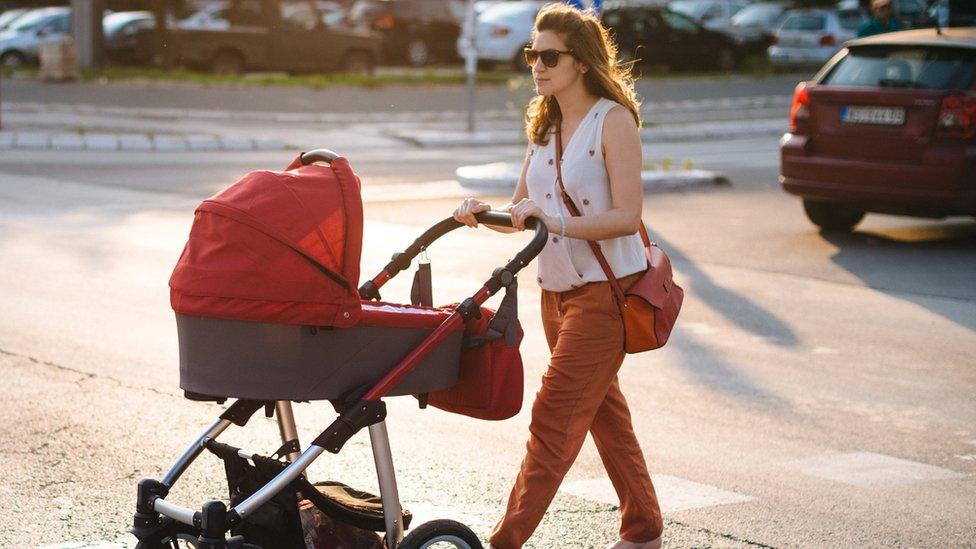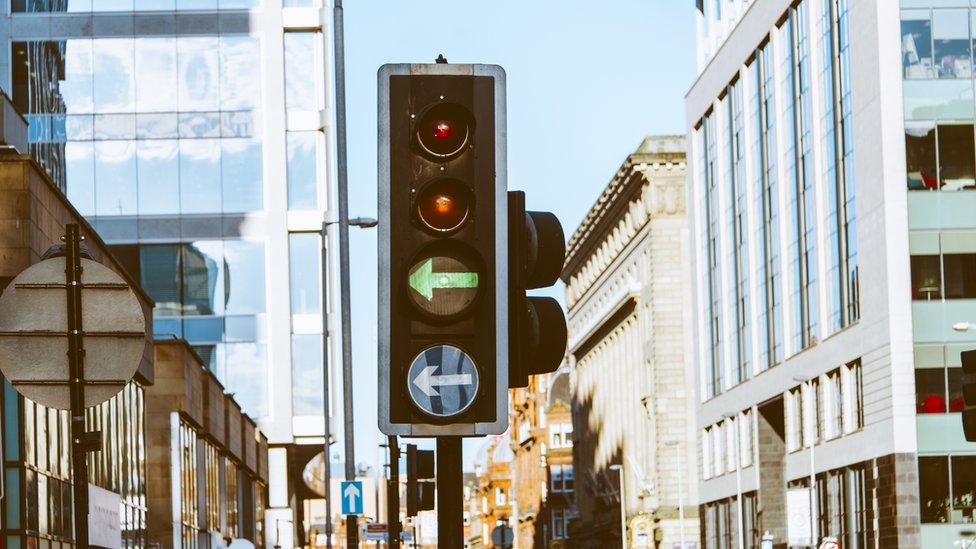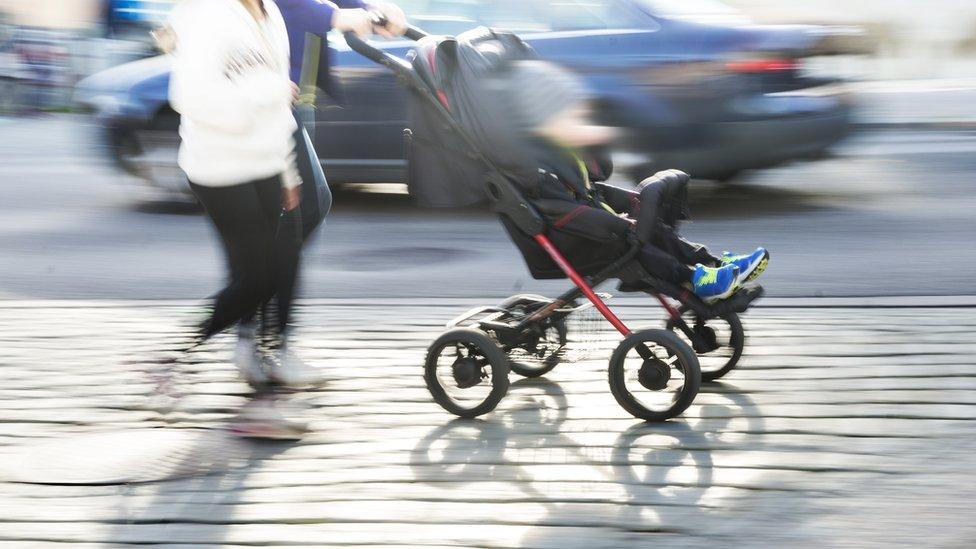Babies in prams 'exposed to more pollution'
- Published

Babies and young children in prams can be exposed to up to 60% more pollution than adults, a study suggests.
Experts said infants were exposed to dirtier air in prams because they were lower to the ground and closer to exhaust pipes.
They are also more at risk from the health dangers of dirty air because their bodies are small and developing.
The study's authors said avoiding busy roads and using pram covers were ways to reduce pollution exposure.
Researchers at the Global Centre for Clean Air Research, at the University of Surrey, carrying out a review of existing evidence, found that the breathing height of infants in prams was between 0.55m and 0.85m (2ft) above ground level.
Because pollution levels are greater within 1m of ground level, these infants are being exposed to up to 60% more fine particle air pollution than adults, the evidence indicates.
Roadside pollution contains high levels of toxic metals, which have the potential to impair brain development in infants, the researchers said.
Prof Prashant Kumar, one of the authors of the paper, said: "When you also consider how vulnerable they are because of their tissues, immune systems, and brain development at this early stage of their life, it is extremely worrying that they are being exposed to these dangerous levels of pollution."

Experts say people should avoid pollution hotspots such as traffic lights
'Frank conversation'
The researchers said the amount of extra pollution babies in prams breathed in would be lower in areas with less traffic or where pollution was dispersed in other ways, such as with roadside hedges.
The study did not look at whether some prams were better or worse for exposure to pollution.
The authors called for more to be done to reduce air pollution or lessen its effects, such as lowering the emissions of road vehicles and encouraging greater use of public transport.
In the meantime, Prof Kumar said, parents could reduce the risk to their babies and young children by using pram covers and avoiding pollution hotspots, such as busy roads, traffic lights and bus stops.
He added: "With the multitude of evidence we set out in this review, it is important that everyone across the country begins a full and frank conversation about pollution and the impact it has on our most vulnerable - from parents and community leaders, to government officials and industry."
Prof Jonathan Grigg, from the Royal College of Paediatrics and Child Health, who was not involved in the research, said the findings were a "major concern".
"To help protect children's health we must promote alternatives to cars fuelled by petrol and diesel," he added.
The study was published in the Environment International journal, external.
- Published9 March 2017
